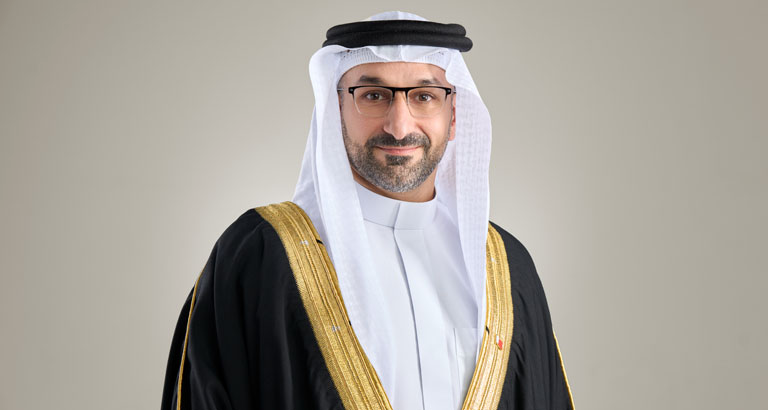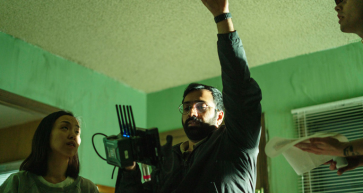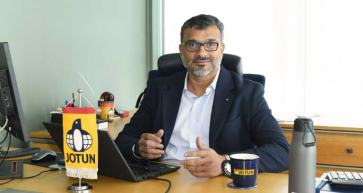
Backed by a digitally driven transformation agenda and a future-ready vision, Bahrain has cemented itself as an attractive destination for foreign investment owing to its business-friendly approach and value-adding investment opportunities, emerging as a leading contender on an international playing field. We recently sat down with the Kingdom’s Minister of Industry and Commerce, HE Abdulla bin Adel Fakhro, to delve deeper into how Bahrain managed to carve out a thriving ecosystem for investors, entrepreneurs, and innovators.
Congratulations on being appointed as Minister, a position you’ve held since November. How do you plan to promote Bahrain as a destination for foreign direct investment?
When it comes to attracting investment, it is not so much promoting Bahrain as it is nurturing mutual beneficial relationships with investors. As Minister, I work closely with the Bahrain Economic Development Board, seeking out high-impact projects and companies across key markets and geographies that fall under focused sectors of Bahrain’s national economy, and in turn, we advocate what we bring to the table to investors.
Beyond its strategic location serving as the gateway to the gulf, with tax-free exporting and free trade agreements covering 22 countries – complete with a brand-new US Trade Zone - Bahrain offers businesses setting up major advantages, including the most competitive operating costs and living expenses in the region to name a few. This has earned Bahrain its standing as the investment destination of choice for multinational companies, particularly in the manufacturing and logistics industry, which are seeking a reliable base to set up their operations or expand into the Middle East and North Africa region which is currently witnessing exponential growth. Of course, our human capital remains our biggest asset. With incredibly high literacy rates, Bahrainis are the most tech savvy, highly educated, and highly skilled workforce in region, are fast learners by nature with a strong work ethic.
Taking all the above into consideration, for foreign companies looking to invest in Bahrain, we can compete head-to-head with the best in the world.
What are the government's plans to support the growth of small and medium-sized enterprises (SMEs)?
The small and medium enterprise (SME) sector holds significant importance, particularly in Bahrain, where more than 93% of private sector businesses fall under this category. Understanding the unique needs of micro-businesses and small-to-medium enterprises, we have implemented tailored initiatives to provide effective support and foster their growth in the market.
In my role as the Chairman of the SMEs Development Board, I am dedicated to setting SMEs on a path towards long-term success. Our mission at the SMEs Development Board is to enhance the establishment processes and capabilities of SMEs, enabling them to thrive in local, regional, and global markets. We aim to increase the contribution of SMEs to the gross domestic product, exports, and employment opportunities within the local labor market.
Since its establishment in 2017, the Board has made remarkable progress in implementing the initiatives outlined in our strategic plan. Through collaboration with relevant stakeholders in the kingdom, we have successfully accomplished 30 out of 44 initiatives. These initiatives focus on facilitating access to financing, providing market access, simplifying the business environment, developing skills, fostering innovation, and promoting growth to create economic value. Notable achievements include the licensing of business incubators and accelerators, the establishment of Export Bahrain, preferential treatment of SMEs in government procurement, crowdfunding platforms, online banking services (Tijara), which make it easier for SMEs to open bank accounts and access microloans as an alternative to traditional banks. Additionally, we have implemented an SME registration system that offers advantages based on enterprise size.
As the Ministry of Industry continues to chair the SMEs Development Board, we work closely with our members to achieve our desired results. We maintain a vigilant approach by closely monitoring the implementation of initiatives and evaluating their performance indicators regularly, taking into account global and domestic economic developments. Recognizing the challenges faced by SMEs, particularly in accessing finance, we are actively working on comprehensive plans and tactics to find practical real-world solutions.
By aligning the goals and governance of our initiatives with our development objectives, we strive to reduce economic impacts and promote stability across different sectors. Through focusing on the unique needs of SMEs and continually adapting to overcome challenges, we aim to create an environment where small businesses can thrive, contribute to the economy, and seize opportunities in the market.
Are there any specific challenges facing the manufacturing sector on the island and what are the government's plans to tackle these?
All sectors have their challenges and opportunities. Naturally, as a small island nation, one of the challenges facing Bahrain is the limited size of the local market in terms of scaling up manufacturing. However, Bahrain is unique to the region in terms of the export opportunities it provides, particularly in the manufacturing sector. We have several initiatives to support manufacturers export their products to international markets, starting with the Gulf, then onwards to the Middle East and North Africa region and the rest of the world.
Beyond the free trade agreements with 22 countries, Bahrain provides manufacturers and mega-factories operating in Bahrain with support through curated schemes, the most recent of which was launched last July, known as the In-Country Value (ICV) programme. This aims to incentivise Bahraini factories to buy locally because we saw a gap in the market where a lot of goods which are manufactured in Bahrain are not being used up the supply chain.
The ICV program (Takamul) basically targets industrial establishments holding a valid industrial license issued by the Ministry of Industry and Commerce in the Kingdom of Bahrain. The Program mainly aims to enhance local content & increase the efficiency of the added value chain, encourage new investment opportunities in the industrial sector, Create job opportunities and develop the Bahraini Workforce, Directing industrial sector expenditures to the local market, Give priority to national products in the government tenders, Enhance the competitiveness of national industrial establishments.
In this week we also launched another program called “iFactories” is an initiative to support the transformation of the industrial sector towards the "Fourth Industrial Revolution" by measuring the readiness of factories and the level of digital maturity and enabling them to invest in technology infrastructure and manufacturing automation using the Smart Industry Readiness Index (SIRI). This index has been adopted by the World Economic Forum to be the main index in evaluating industrial establishments in terms of applying the practices, tools, and technologies of the Fourth Industrial Revolution. SIRI help manufacturers – regardless of size and sector – start, scale, and sustain their manufacturing transformation journeys.
Are there plans afoot to improve the ease of doing business in Bahrain?
In line with Bahrain’s digital transformation plans, we recently launched an upgraded version of the integrated electronic portal, Sijilat 3.0, which aims to facilitate the establishment of commercial projects or complete any requirements related to commercial activities for its users. The latest version includes a more unified portal, with enhanced functionalities in the likes of a comprehensive dashboard, faster lead times, and a more seamless experience, as well as a virtual customer service representative feature, where businesses can conduct online meetings with the requisite government and ministry employees. Ultimately, this new, cloud-based system enables local and international investors alike to better manage their businesses from anywhere in the world, with increased efficiency, speed, and ease.
The Golden License, launched earlier this year, is another example of an initiative launched to build upon the growing investment attractiveness of Bahrain as a business-friendly destination of choice. Awarded to large-scale projects with investment value exceeding USD 50 million, or that demonstrate the creation of more than 500 jobs in Bahrain, the Golden License provides incentives and streamlined services to foreign and local businesses, comprising key privileges and benefits, including prioritised allocation of land for investments, infrastructure services and utilities; as well as streamlined access to government services.
What about the development of Bahrain's digital economy? Is this a priority for your ministry?
Bahrain is home to many firsts in region, including being the first to drive rapid digital transformation initiatives and introduce several tech-friendly laws and regulations in the likes of open banking, one of the first to introduce a commercial 5G network, and home to the first AWS Data Centre Region. To date, 85% of government data in Bahrain has been transferred to the cloud. This marks a first for any country in the world. Backed by progressive regulatory authorities in the likes of the Central Bank of Bahrain that keep pace with global trends, issuing forward-thinking regulations to fuel Bahrain’s thriving ecosystem of innovation, Bahrain operates with agility and drive, giving rise to success stories with regional and global impact.
Naturally, remaining at the forefront of digital transformation is a top priority for the government of Bahrain. One of the key pillars under the Economic Recovery Plan comprises implementing tactical digital transformation initiatives across focused sectors, namely the non-oil sectors of financial services, manufacturing, ICT, logistics, and tourism. The strategy works towards establishing a world-class digital infrastructure in Bahrain by developing cybersecurity standards, attracting big-tech companies, and becoming a regional digital innovation hub.
For the Ministry of Industry and Commerce, our ultimate goal is to lead the change which the SME sector wants to see in the economy. This entails continuing to build the requisite digital infrastructure and investing in the right platforms, which allow SMEs and other businesses to truly scale up their businesses, at a lower cost, and a greater scale, for a more sustainable and profitable future ahead.
What are the latest updates on the US Trade Zone project known as the USTZ?
First launched in 2020, the US Trade Zone (USTZ) has been set up as a dedicated zone for US companies to set up, benefitting from Bahrain’s strategic location with 100% ownership over their businesses, complete with state-of-the-art infrastructure. We work closely with local government entities, and the US Embassy in Bahrain, to raise awareness on the project. The Zone competes with the best of the best on an international level, phase one is already well underway, where a government tender has recently been issued for the construction of basic infrastructure works, power grid, and sewage systems, which will be awarded by the fourth quarter of 2023 / 2024. As for phase two, approximately 1.11 million square meters of land, with the ability to expand in the future, will be dedicated towards industry and logistics companies.
We believe the USTZ extends beyond the opportunities it presents in terms of trade on the goods and services side, which has a positive impact on the Bahraini business community and US-based businesses operating out of the Zone. At the end the day, Bahrain has strong ties with the US, hosting the US Navy’s Fifth Fleet, and its logistical and operational support. This project forms another vital pillar that cements Bahrain’s commitment to enhancing bilateral economic, commercial, and industrial cooperation, particularly in manufacturing, logistics and distribution among American companies in local and regional markets.
Is there anything else you'd like to add?
We continue to form ambitious plans at the Ministry of Industry and Commerce to contribute to the growth of the national economy and are optimistic about Bahrain’s economic future ahead.
With several key projects already planned in the pipeline, we remain focused on continuing to attract impactful investment projects into Bahrain, and ultimately, supporting Bahraini companies to scale up, be it through advisory services to facilitate their access to markets or providing support programs through the relevant authorities, in the likes of Bahrain’s Labour Fund, Tamkeen, which provide SME and larger corporations with the subsidised training opportunities to bridge gaps in skills and knowledge. This framework of support enables the SME sector to work towards growing their business faster, more profitably, and in a more sustainable manner. This in turn, contributes to the growth and diversification of the national economy, resulting in a mutually beneficial ecosystem that catalyses growth, for the benefit of all sectors of the economy.



